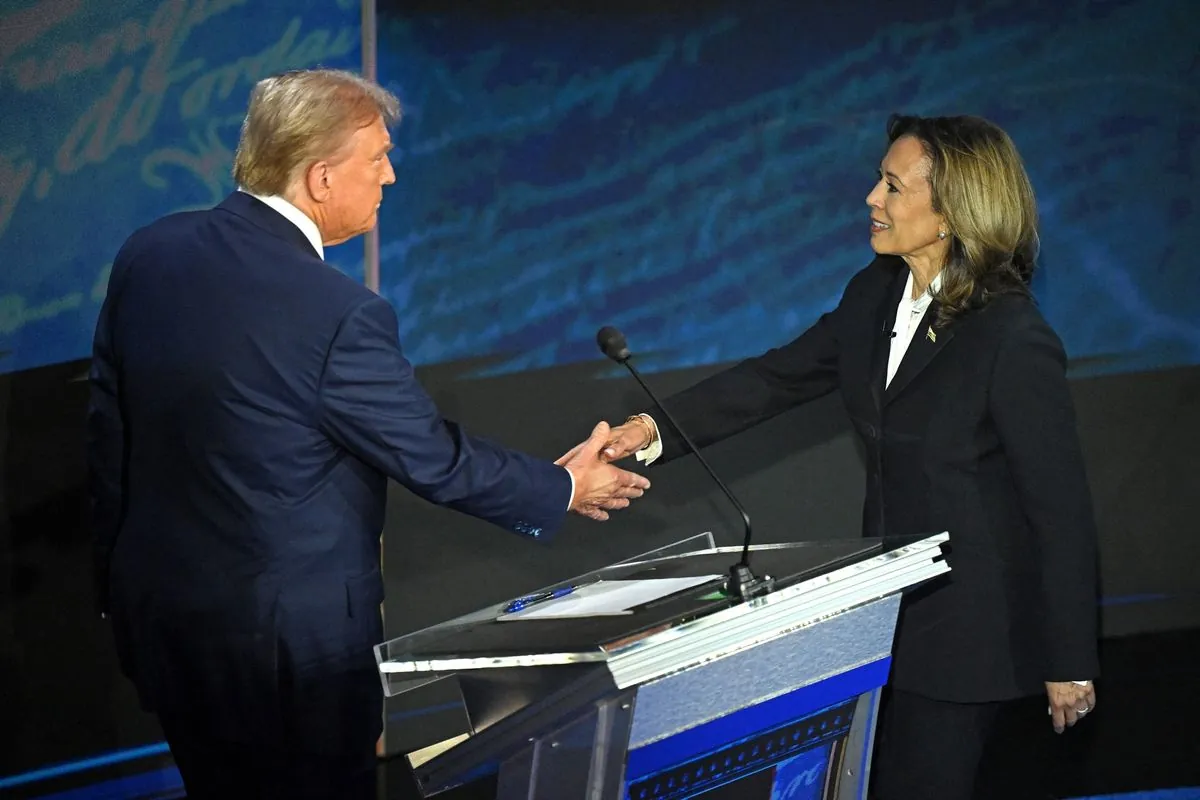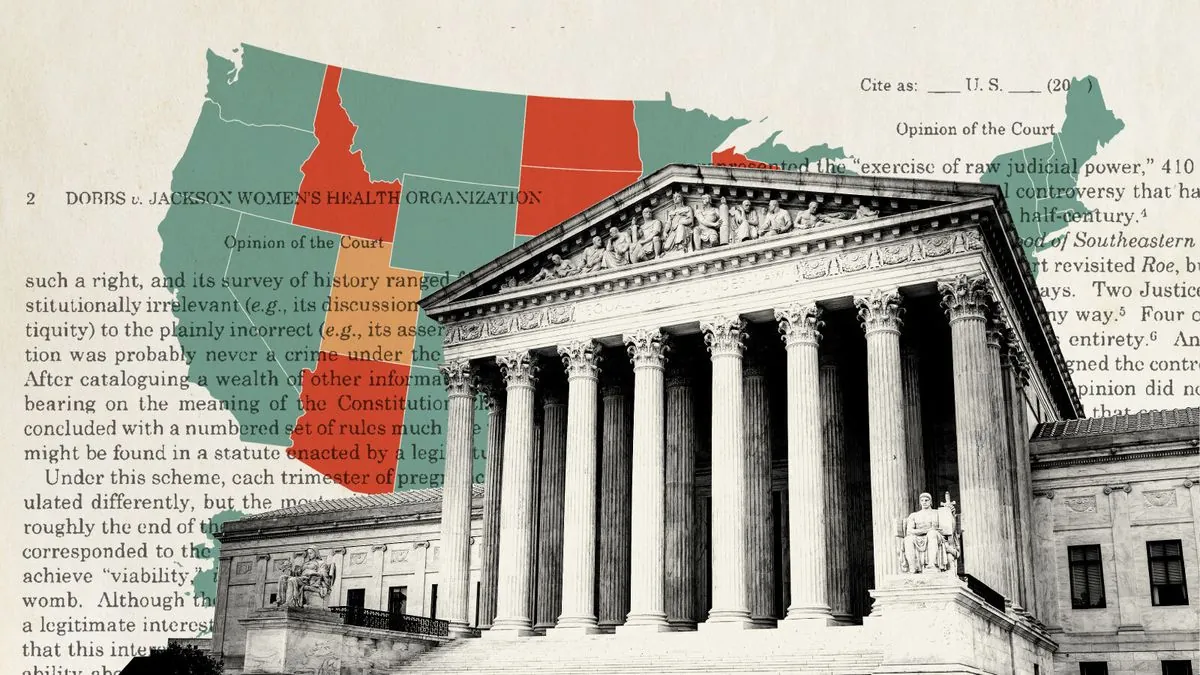Fact-Checking the Harris-Trump Debate: Tariffs, Immigration, and More
A recent presidential debate between Kamala Harris and Donald Trump saw claims on various issues fact-checked. Topics included economic policies, immigration, and foreign affairs, revealing a mix of accurate and misleading statements.

In a high-stakes presidential debate held in Philadelphia on September 10, 2024, Democratic candidate Kamala Harris and Republican rival Donald Trump faced off, addressing key issues and making numerous claims. This article examines the accuracy of their statements, providing context and fact-checking on topics ranging from economic policies to immigration.
Harris asserted that economists project Trump's tariff proposals would cost middle-class families about $4,000 more annually. This claim aligns with high-end estimates from some think tanks, though other nonpartisan organizations suggest lower increases. The impact of tariffs on consumers remains a contentious economic issue, with roots tracing back to the first U.S. tariff law in 1789.
The Democratic candidate also referenced a letter signed by sixteen Nobel laureates expressing concerns about Trump's economic agenda. While the economists did warn of potential negative impacts, they did not explicitly predict a recession, as Harris suggested. It's worth noting that the Nobel Prize in Economics, first awarded in 1969, has become a significant voice in economic policy discussions.
On the topic of abortion, Harris claimed a Trump administration would lead to a "national abortion ban." Trump countered, stating he's not in favor of such a ban. The reality is more nuanced, with Trump's stance on abortion policies showing inconsistencies over time. This debate echoes the long-standing political divide on reproductive rights, which has been a contentious issue since the 19th century.

Trump's claims also came under scrutiny. He stated that 21 million people have entered the U.S. during the Biden administration, a figure that exceeds official data. U.S. Customs and Border Protection, established in 2003, reported approximately 10.2 million encounters nationwide between January 2021 and July 2024.
The former president's assertion about immigrants in Springfield, Ohio, "eating pets" was found to be unsubstantiated, with local authorities refuting such claims. This highlights the importance of verifying information, especially in the context of immigration debates.
Trump accurately stated that he received more votes than any previous Republican candidate in the 2020 election. However, it's crucial to note that his opponent, Joe Biden, secured even more votes, marking the largest voter turnout in U.S. history.
The debate also touched on foreign policy, with Harris criticizing Trump's negotiations with the Taliban. While her statements about prisoner releases and Camp David invitations were accurate, they require context to fully understand the complexities of U.S.-Taliban relations.
Climate change emerged as another point of contention, with Harris referencing Trump's past statements calling it a "hoax." Trump's skepticism towards climate science has been well-documented, contrasting sharply with the global consensus represented by agreements like the Paris Accord, adopted in 2015.
As the 2024 presidential race intensifies, the importance of fact-checking and critical analysis of candidates' statements becomes increasingly evident. This debate, following in the tradition of televised presidential debates since 1960, serves as a reminder of the complex issues facing the nation and the need for informed discourse in the democratic process.
"For 18 months we had nobody killed"
This claim by Trump was found to be false, with Defense Casualty Analysis System data showing U.S. military deaths in Afghanistan for each year of his administration.
In conclusion, this debate underscores the ongoing challenges in American politics, from economic policies to social issues and foreign affairs. As voters prepare to make their choice, the ability to discern fact from fiction remains crucial in shaping the future of the nation.


































